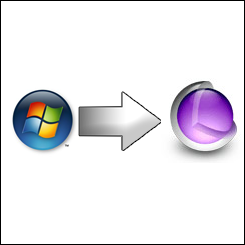There is nothing fun about Java. Every possible good facet’s goodness is completely predicated on the requirement that you know how to set up and or get around some soul sucking gotcha. Where it’s been said that even a language such as Perl can make “easy things easy and hard things possible”, Java seems to try to make “easy thing hard and hard things infuriatingly impossible”.
Ok, I know. This will get some people steaming. You may not want to continue reading if that’s you. I’m sure that your assumptions are that I’ve never given Java a chance. I’ve never worked with Java long enough to make any sort of real assessment. I’m not a real programmer… blah blah blah. Ok. Sure yeah. I’m not going to try to convince you of anything. I’m sure you’ve found Java just wonderful for your research paper or whatever pet project you’re working on. That’s great. You know so much. Like I said. You may not want to continue reading.
For those of you who can hear it, here’s the point. Why use a language that tries to be everything to everyone when all it does is suck the joy out of being a software engineer. Remember when programming was fun? If you don’t, then you’ve never used anything but Java.
Why do I need to invoke a Factory every time I want just a simple object? Why are there no good GUI design tools–and please, don’t tell me about your favorite GUI design tool. Frankly, they all suck in comparison to pretty much everything else out there. And that’s another thing, why does a GUI based Java application window, when restored from being minimized for several hours, respond so sluggishly?
Java is not fun. It is not exciting. It is not enjoyable. It just makes you grumpy. If you find it fun, I dare you to to tell me how. Go ahead. Put it in the comments now. Let it be known how Java is so fun. Seriously!
I admit that there is no perfect dev environment. They all have their quirks, even my new favorite–xcode on the Macintosh/iPhone, but I just can’t understand the madness. Why do people insist on defending Java–this lousy programming language that is the basis of more once-hot-now-abandoned frameworks than anyone can keep track of. If you don’t believe me, take a quick survey of the latest posts about Java over at Reddit’s Programming Section. Here’s a smattering:
- In Defense of Java
- Is Java Dying? (Please, I hope so!!)
- The World Has Gone Mad
- Java != Slow
- Complaints I’m Seeing About Java
- Just For Fun
All of these posts are actually not bashing Java. The writers like the language. What they are doing, however, is defending it. Why? Because it needs defending. It’s horrible.
What’s fun about programming is problem solving. Sure enough, you’ll spend a lot of time solving problems when you use Java, but they are not programming problems–they are environment problems. Sure, you can write that web app once you’ve decided which lame web framework is the least bad of them all. But then you’ll find that setting up the least bad framework will take you a full day or longer and then it might not work properly once you deploy it. Oh yeah, and where are you going to deploy it? Not on a shared hosting web server. You’ll have to go co-lo and administer the box yourself if you want it to run Tomcat or some other web app server.
… and I could go on, but why?
If you want to have fun writing code… If you want to get your soul back, start writing for the Mac or get the new iPhone SDK and start writing code for it. For that matter, start writing for 8-bit embedded systems. That’s more fun than Java and probably easier. And for those of you who just at that moment thought about suggesting embedded Java for 8-bit micro-controller programming, you need to put your laptop down right now and seek help. Seriously. Call somebody. You are not well.
If you are wondering what’s fun that I am doing these days, take a look at my other blog Cocoa Is My Girlfriend. Here are a few of my latest posts:
 The tide is turning or so it seems. Well, maybe it’s not quite so monumentous as a tide shift, but there is certainly a buzz in the air that I think is indicative of at least a gradual shift. I can’t speak for all Windows developers of course, but I’ve talked to enough of my friends to know that the Macintosh is no longer in their eyes some obscure computer made by some obscure computer company that makes computers for artists. It’s got some amazing tech that would appeal to any geek especially programmers who have the initiative to take advantage of it.
The tide is turning or so it seems. Well, maybe it’s not quite so monumentous as a tide shift, but there is certainly a buzz in the air that I think is indicative of at least a gradual shift. I can’t speak for all Windows developers of course, but I’ve talked to enough of my friends to know that the Macintosh is no longer in their eyes some obscure computer made by some obscure computer company that makes computers for artists. It’s got some amazing tech that would appeal to any geek especially programmers who have the initiative to take advantage of it.